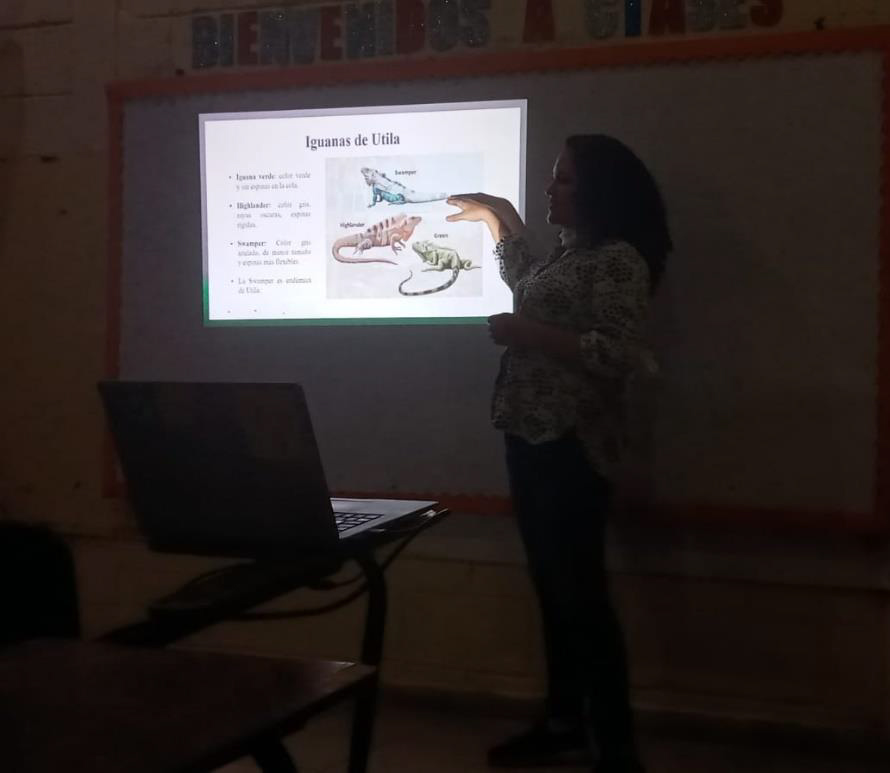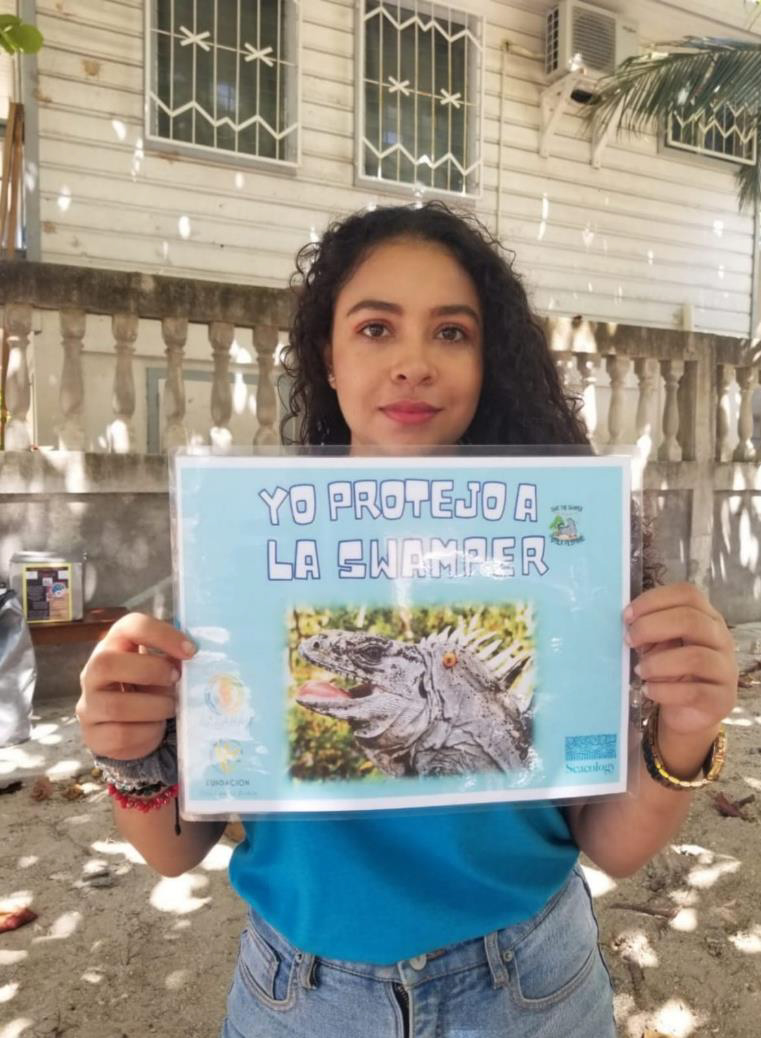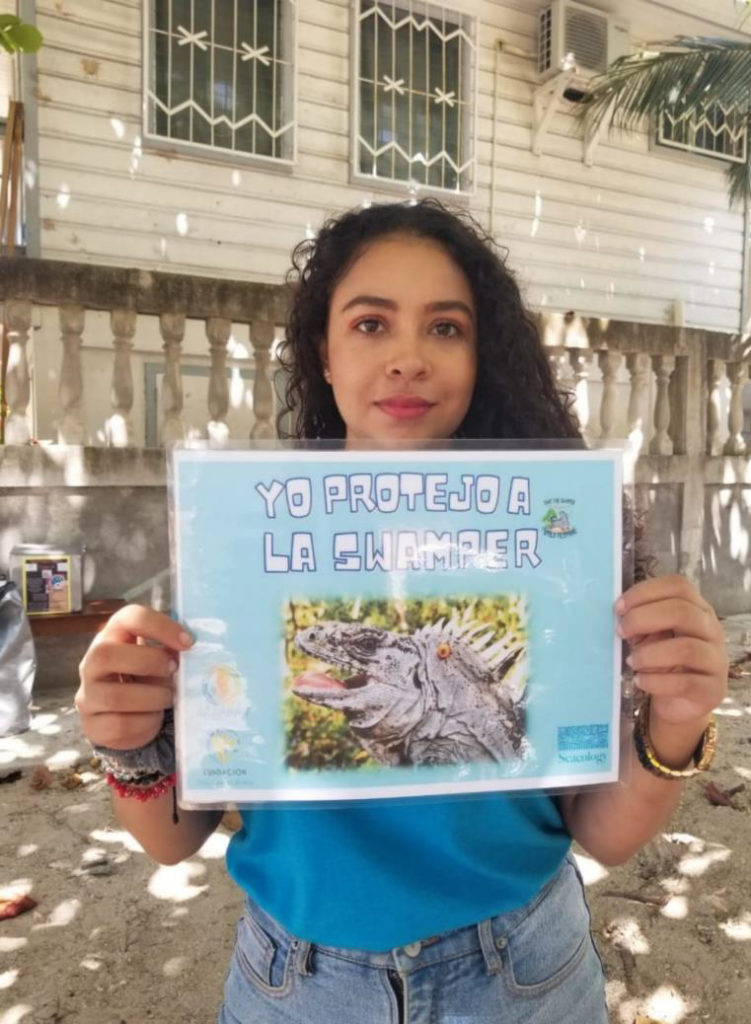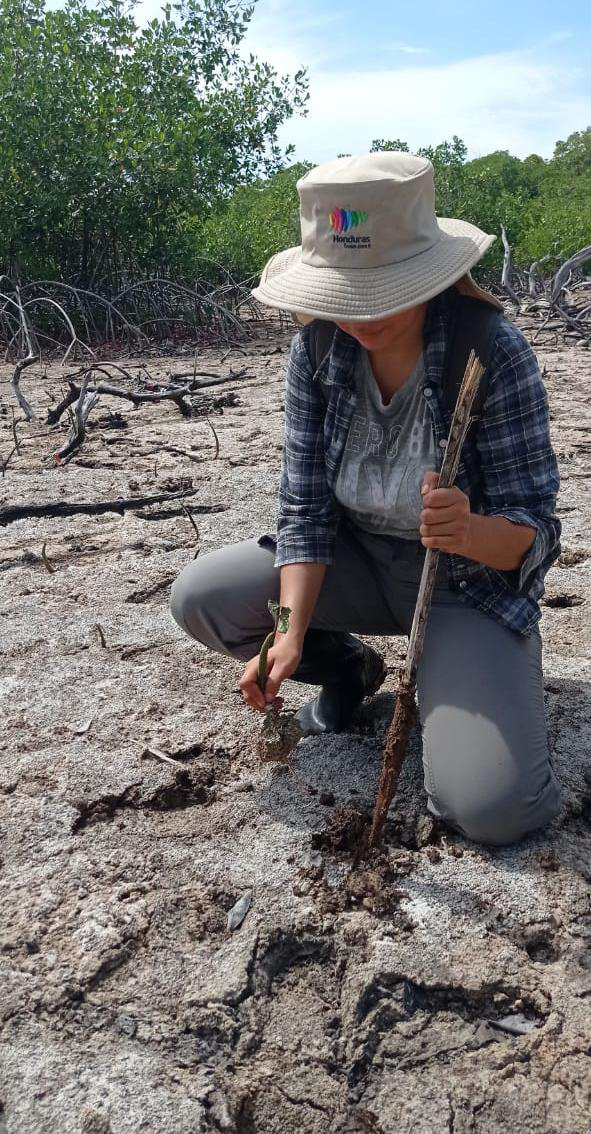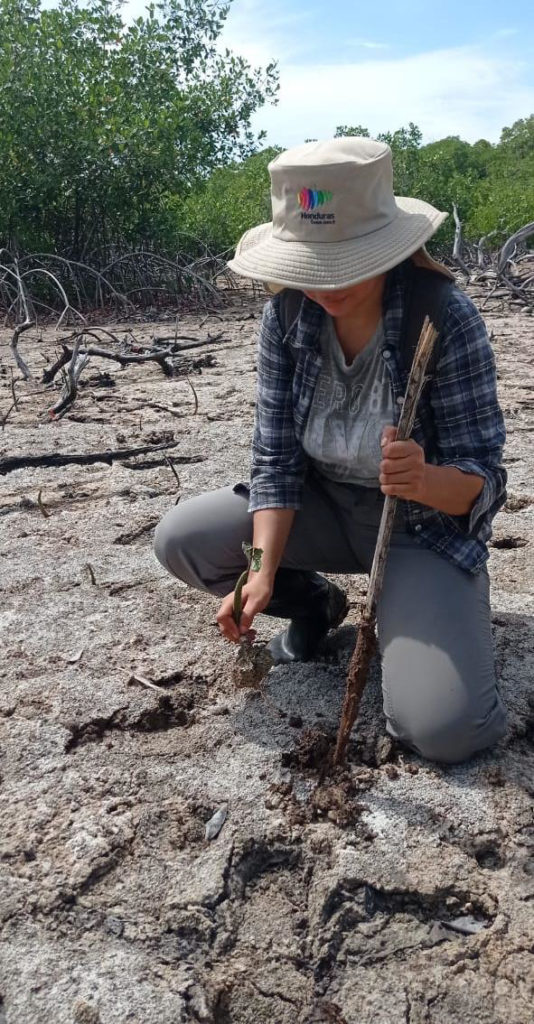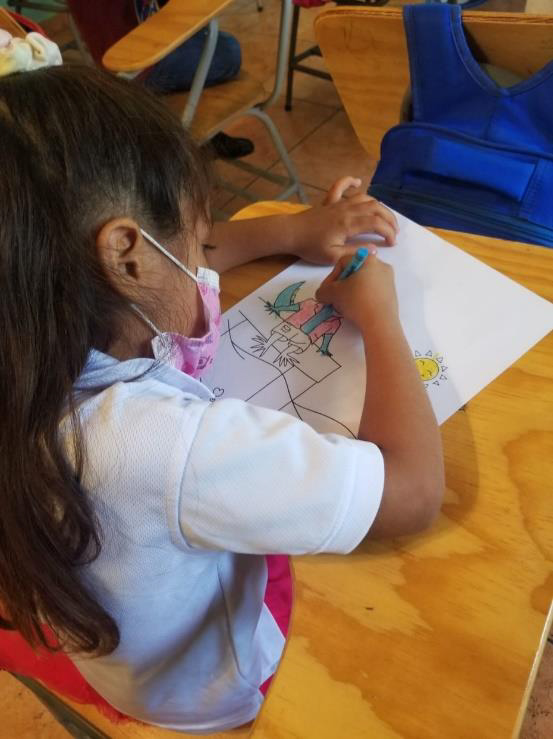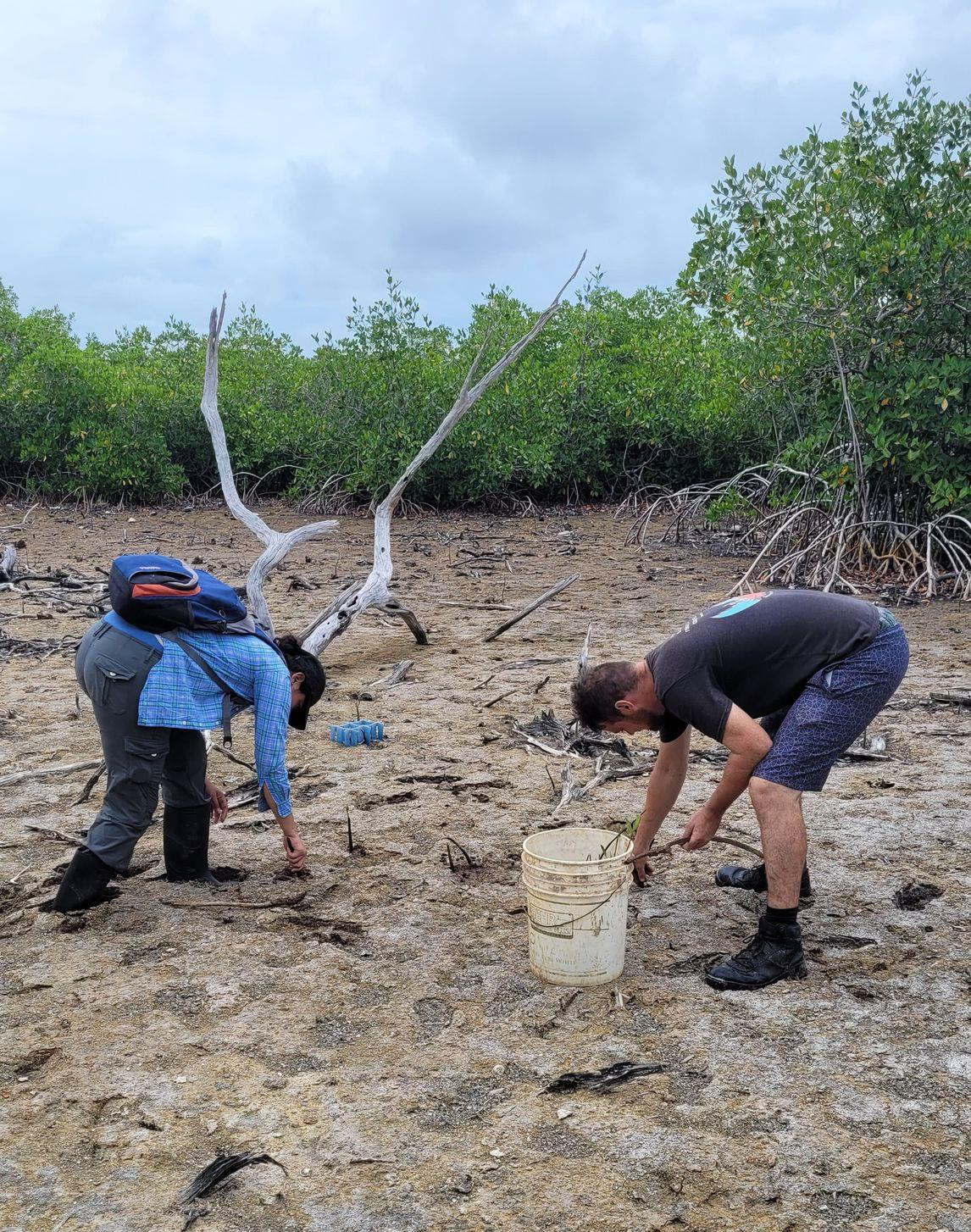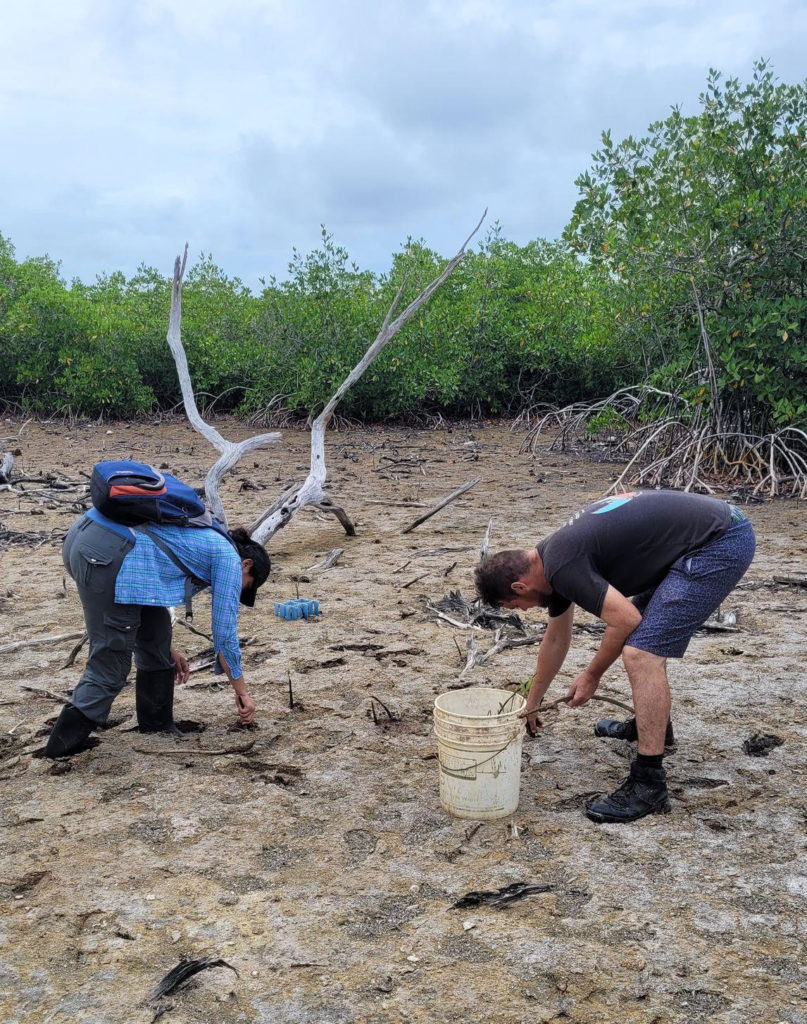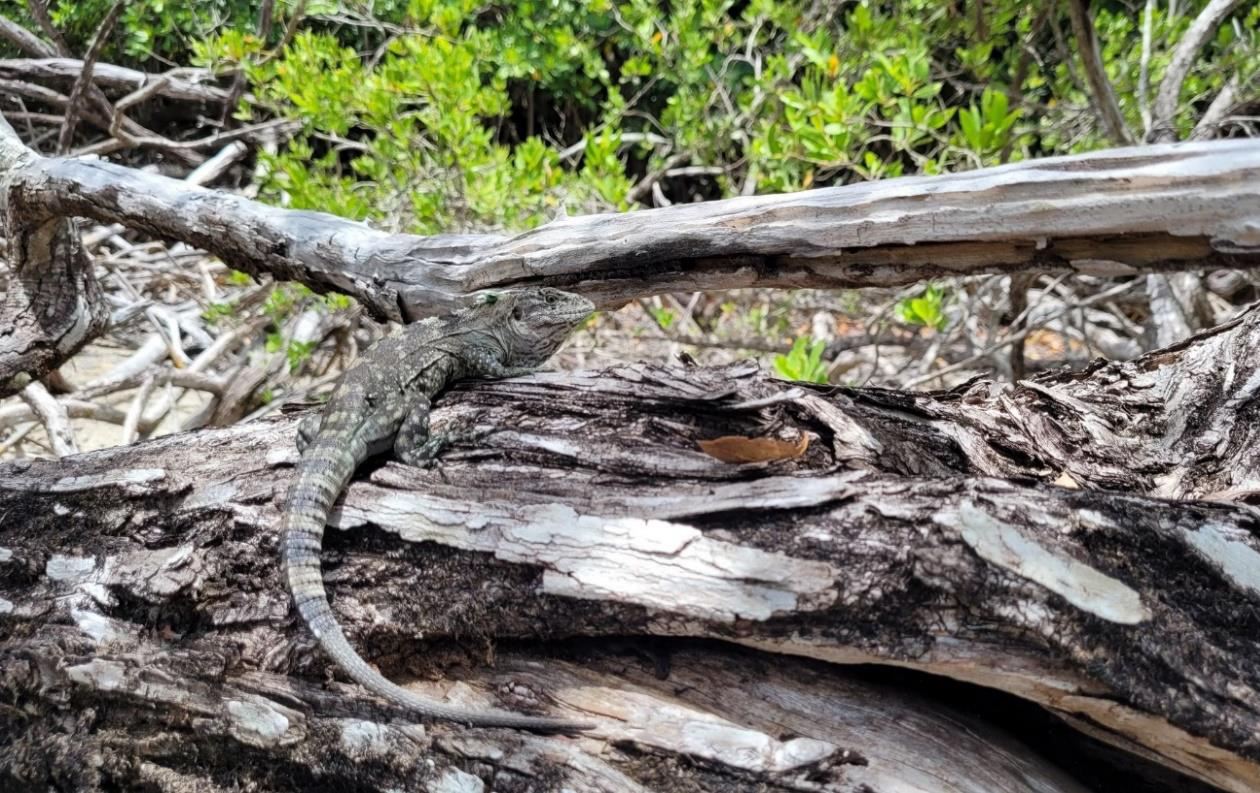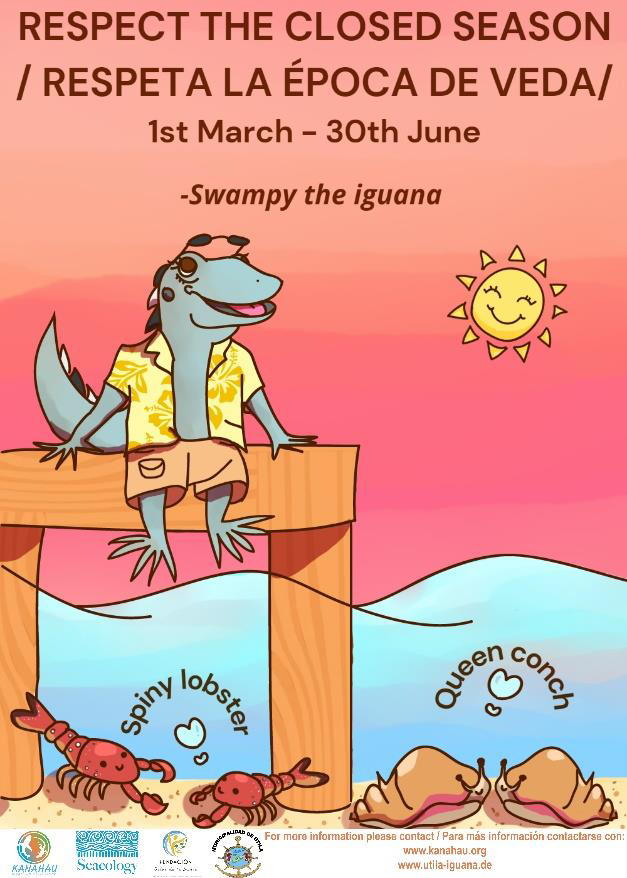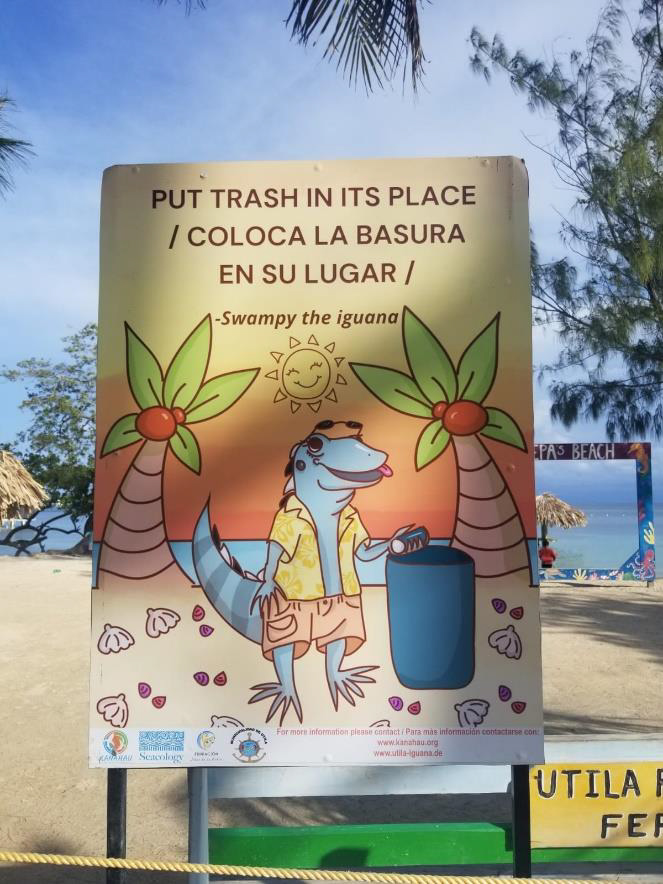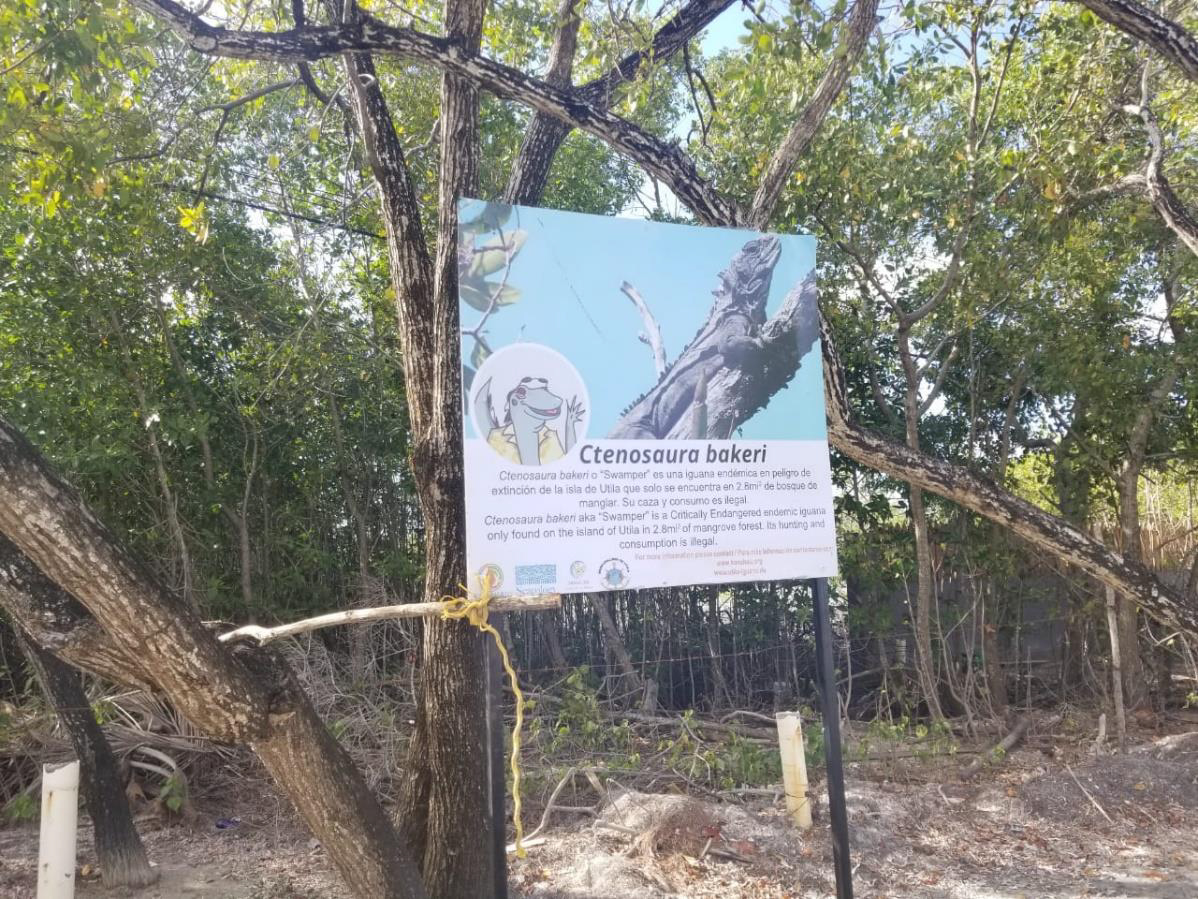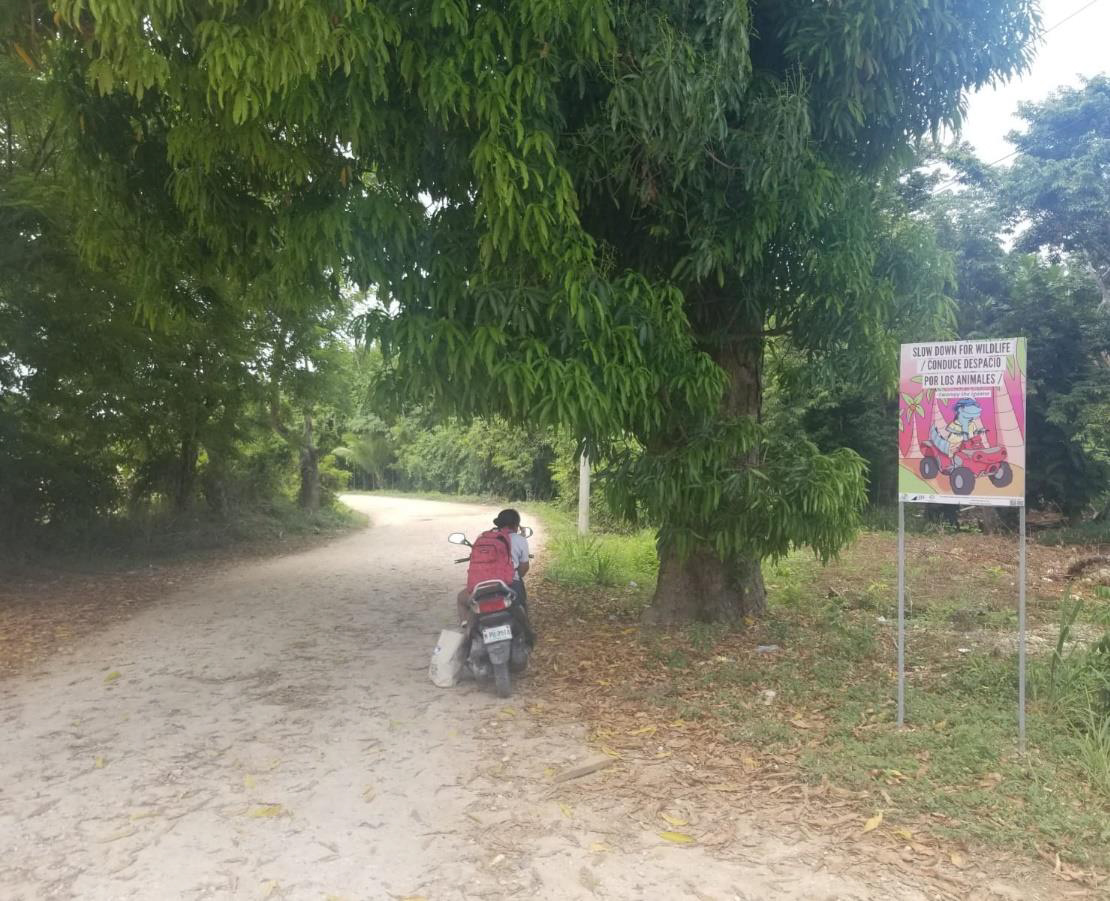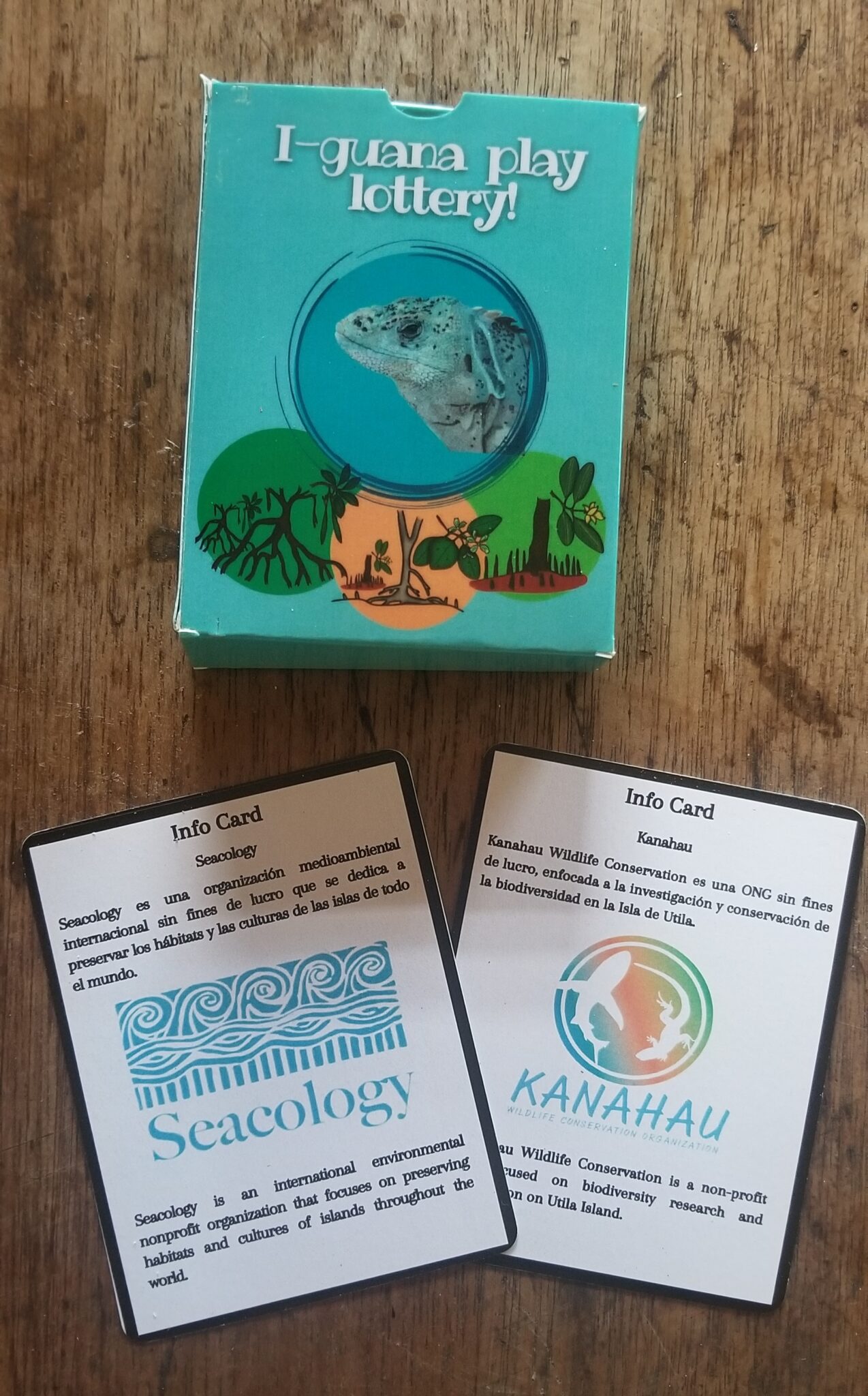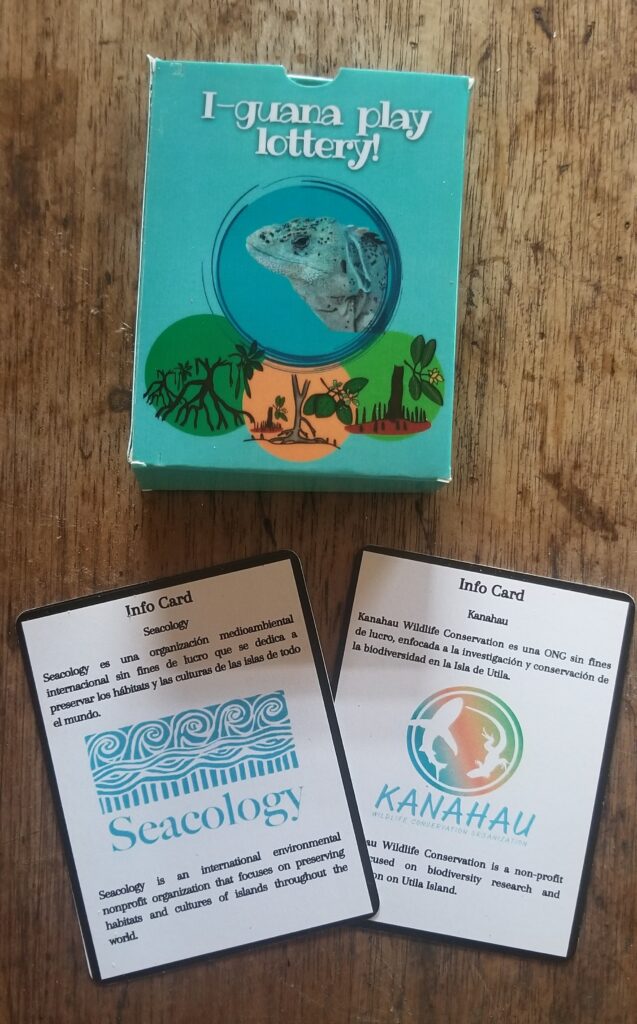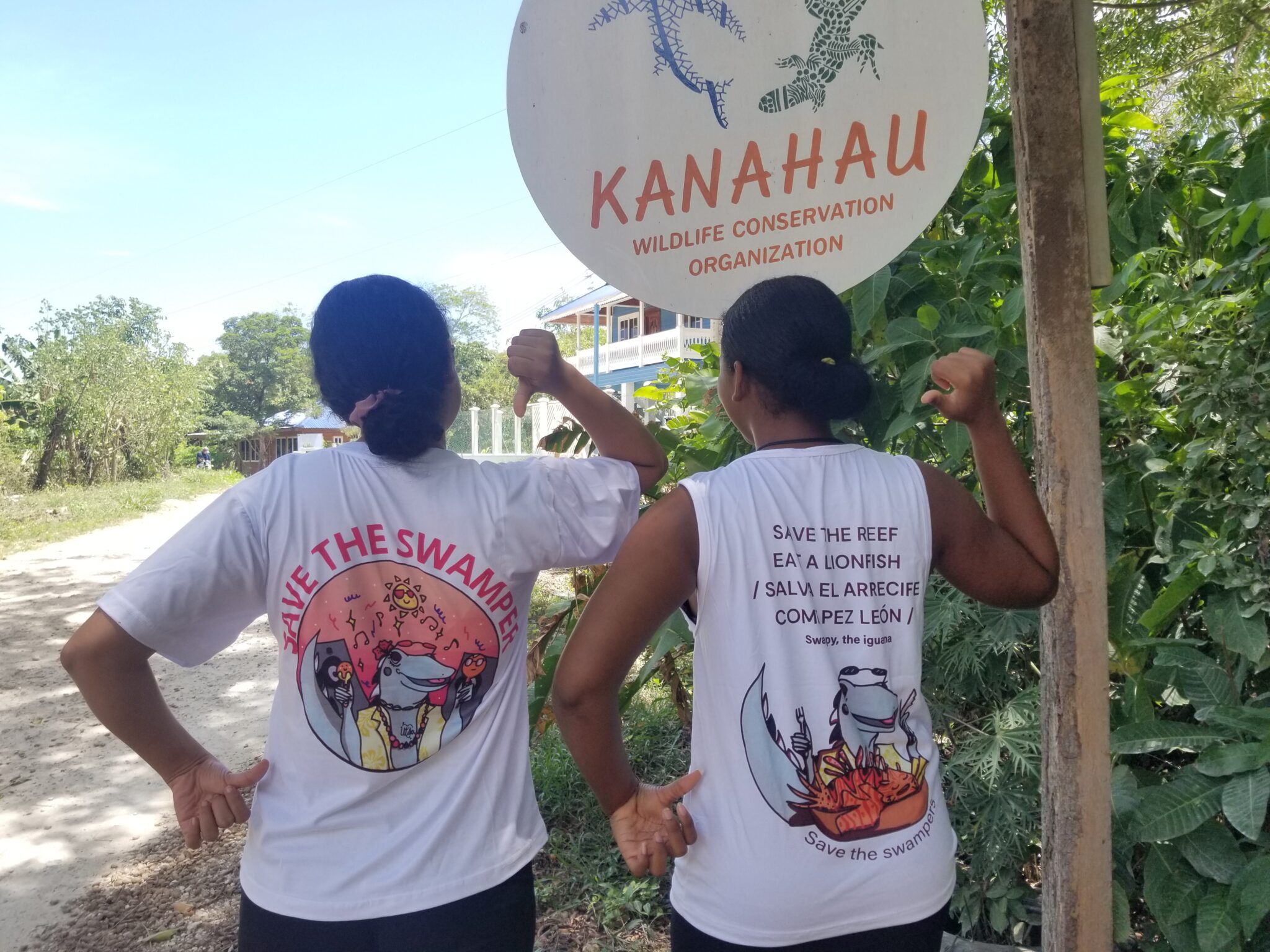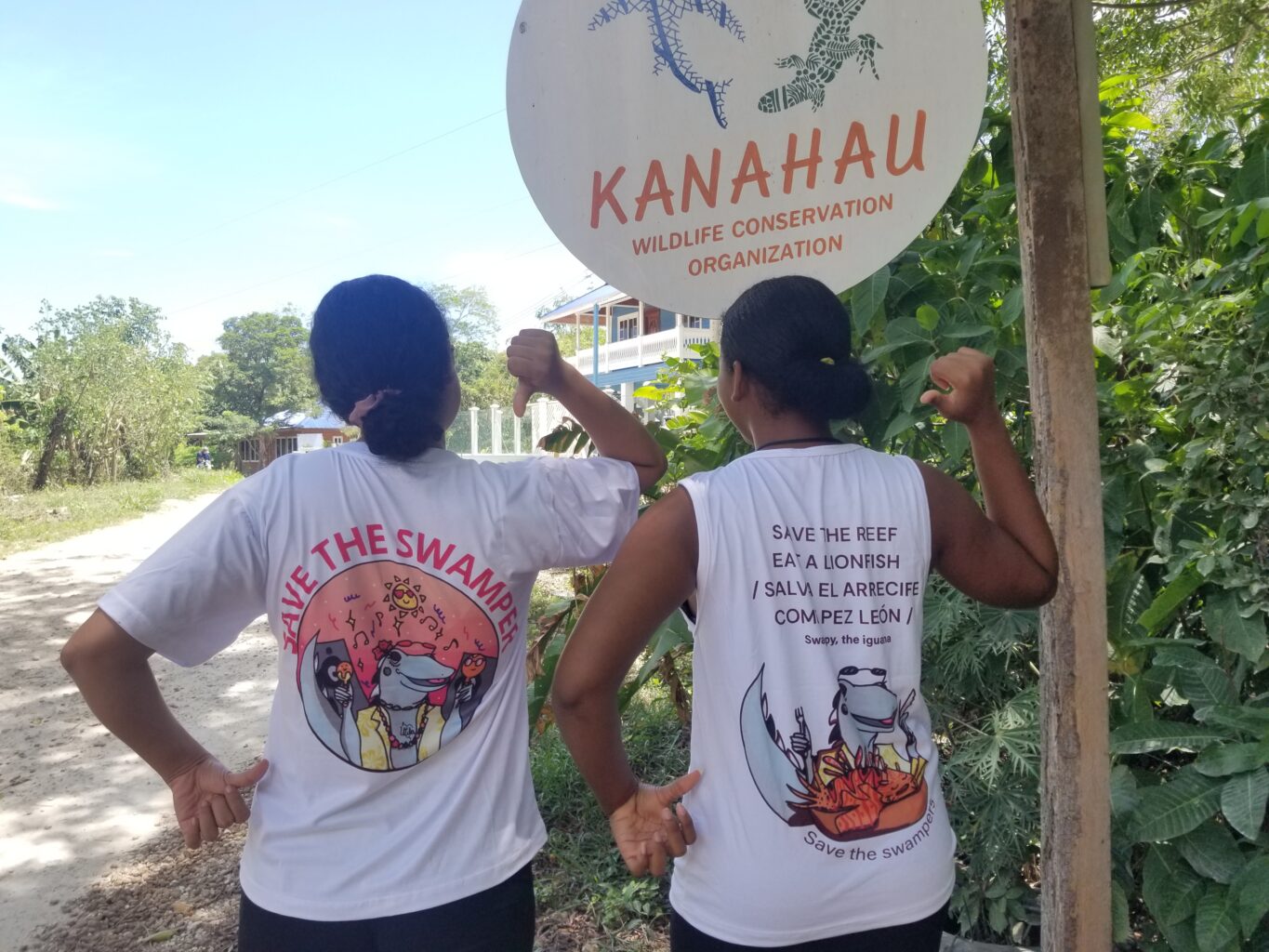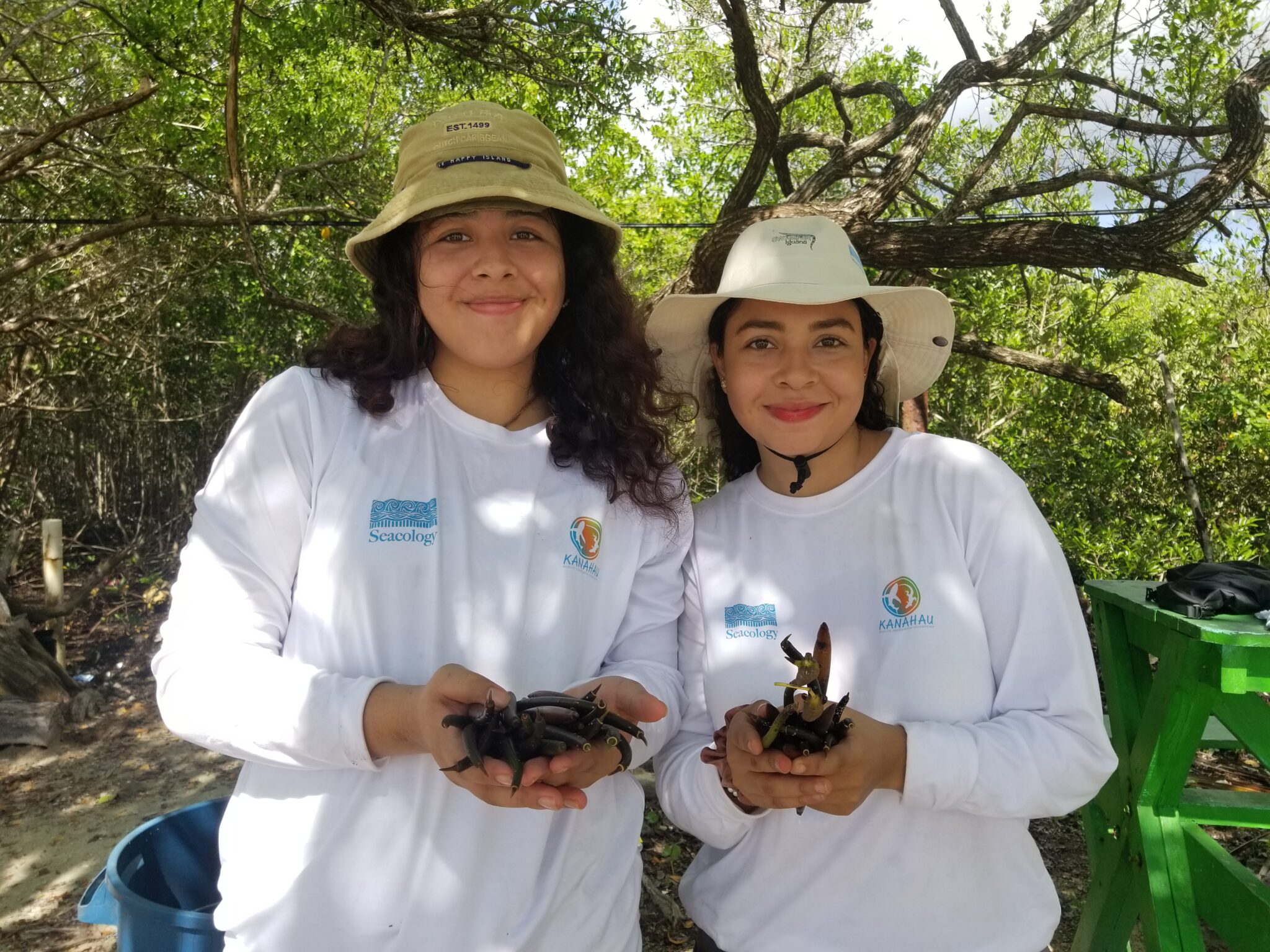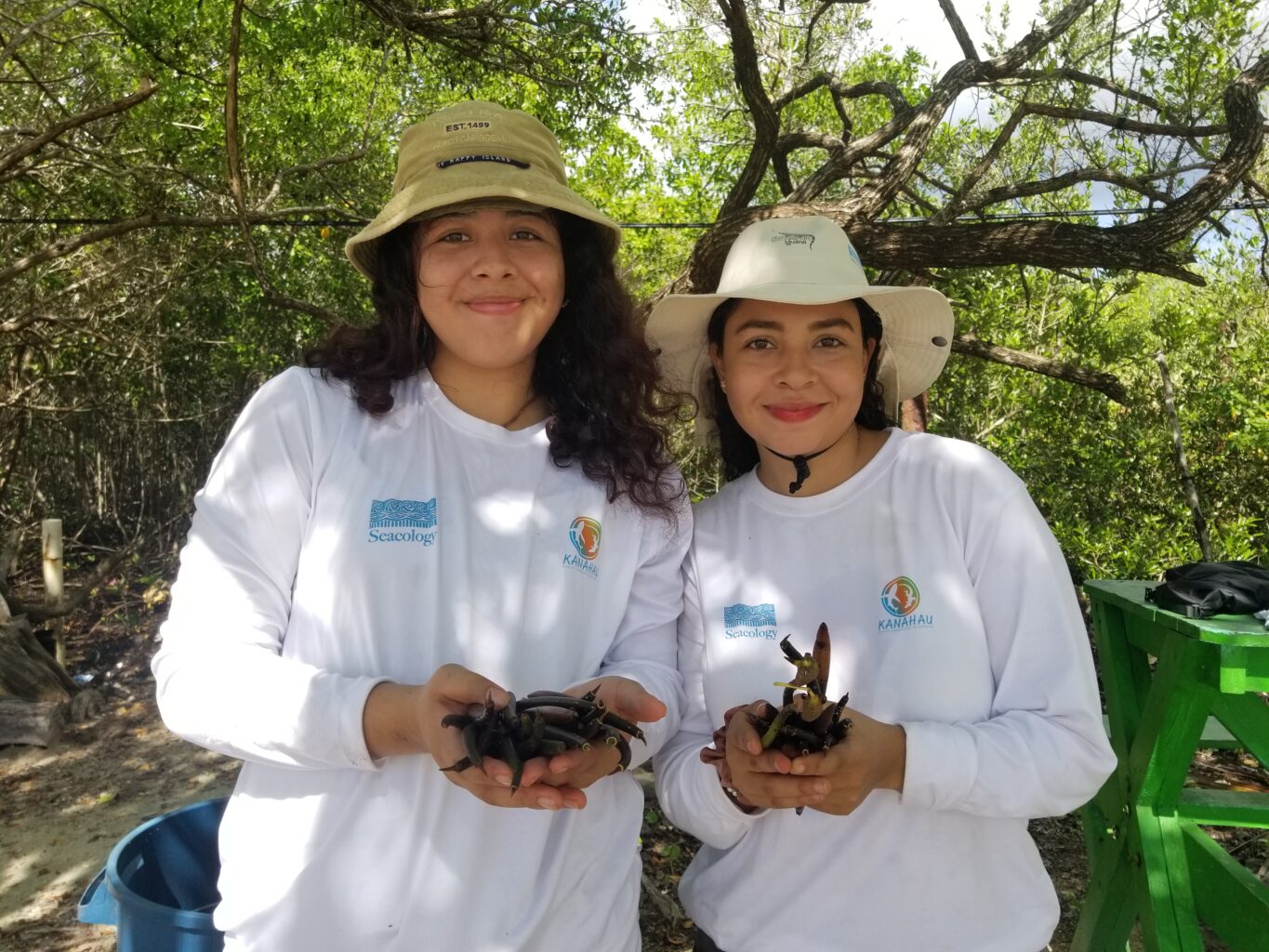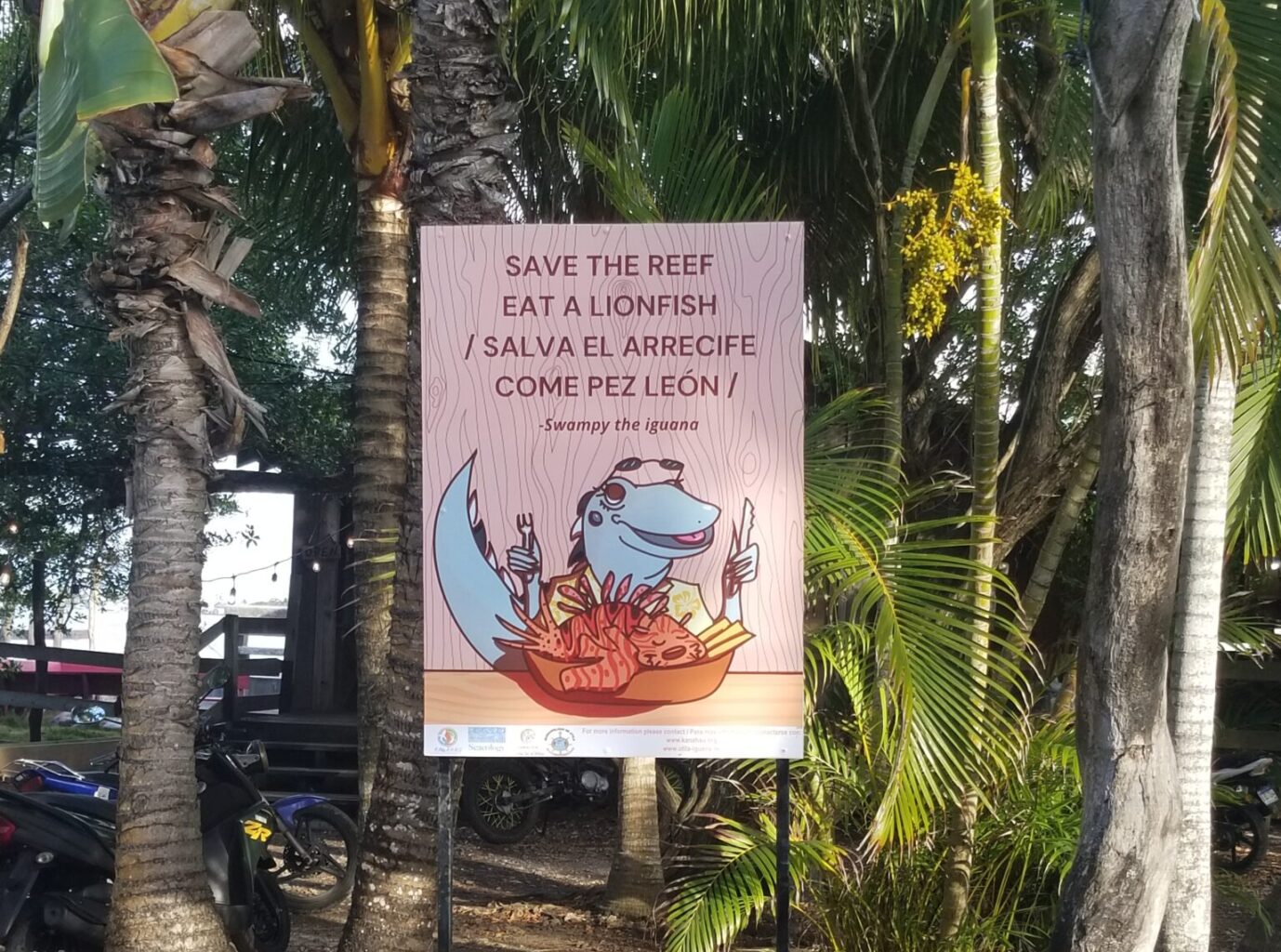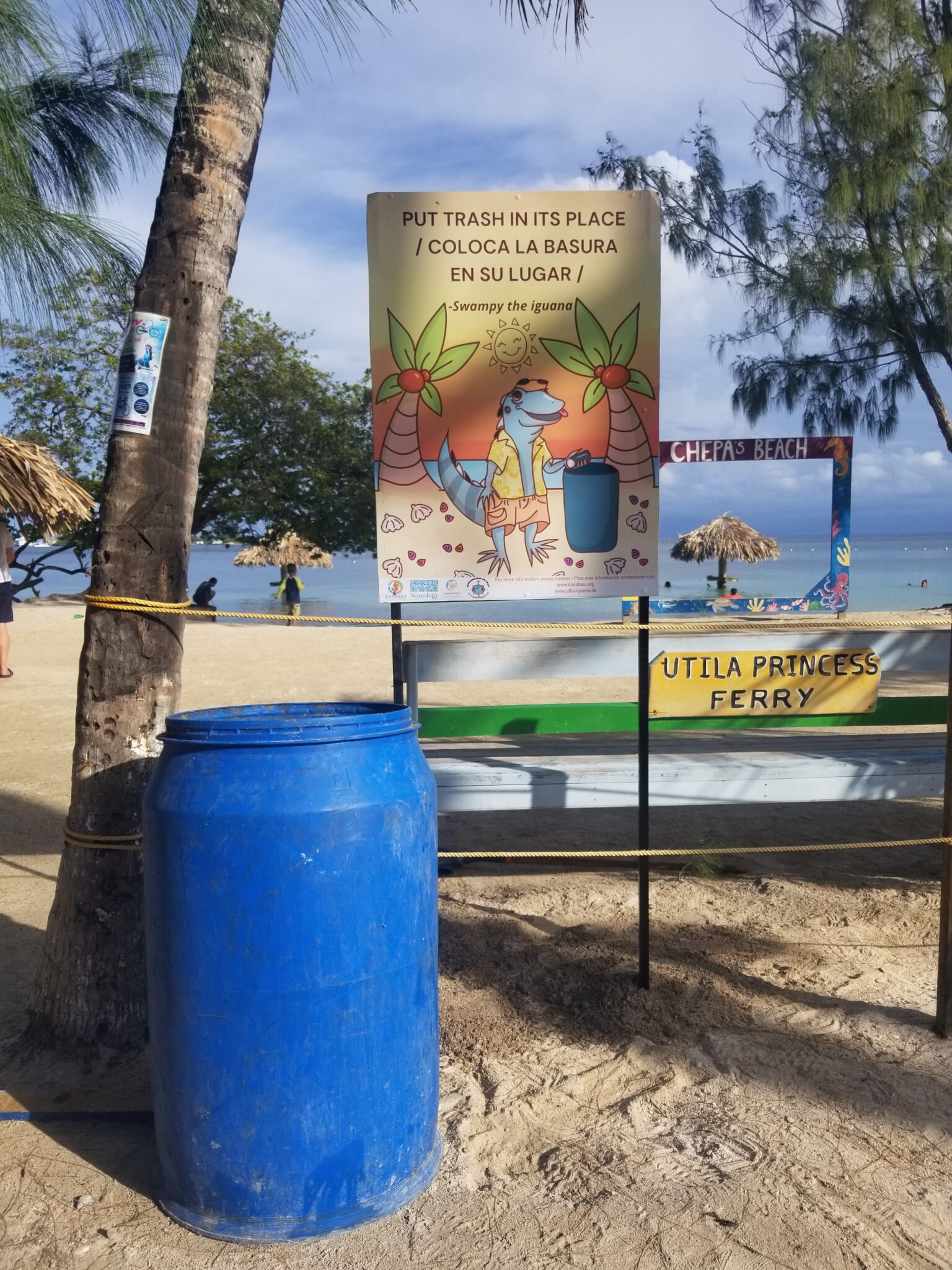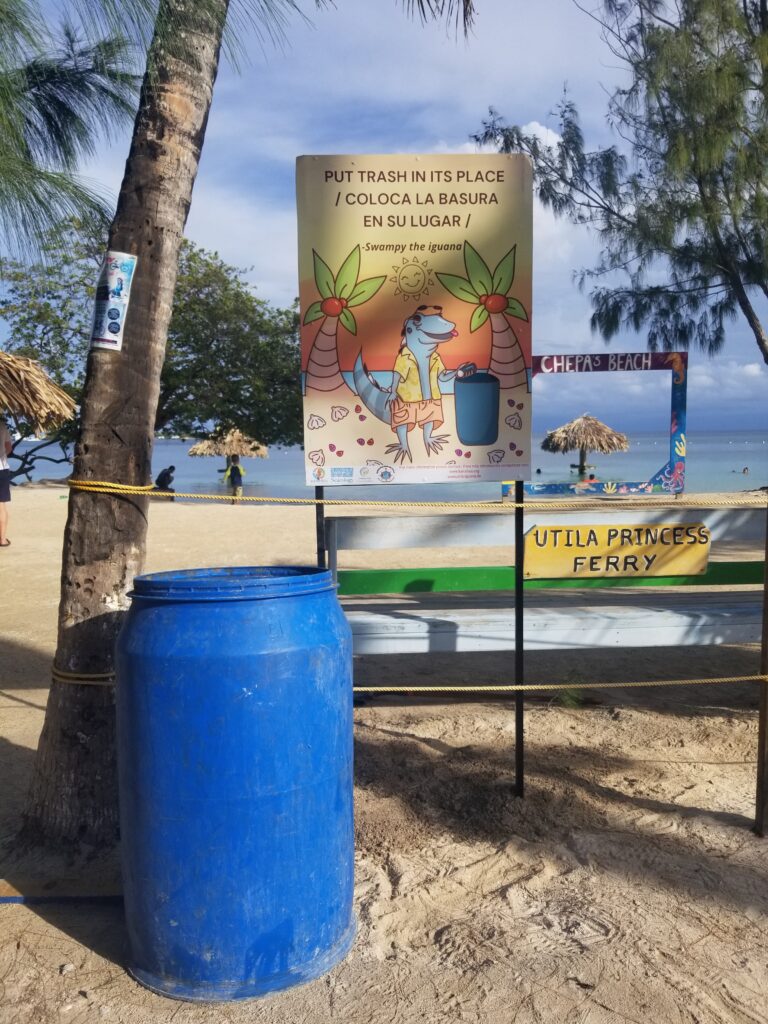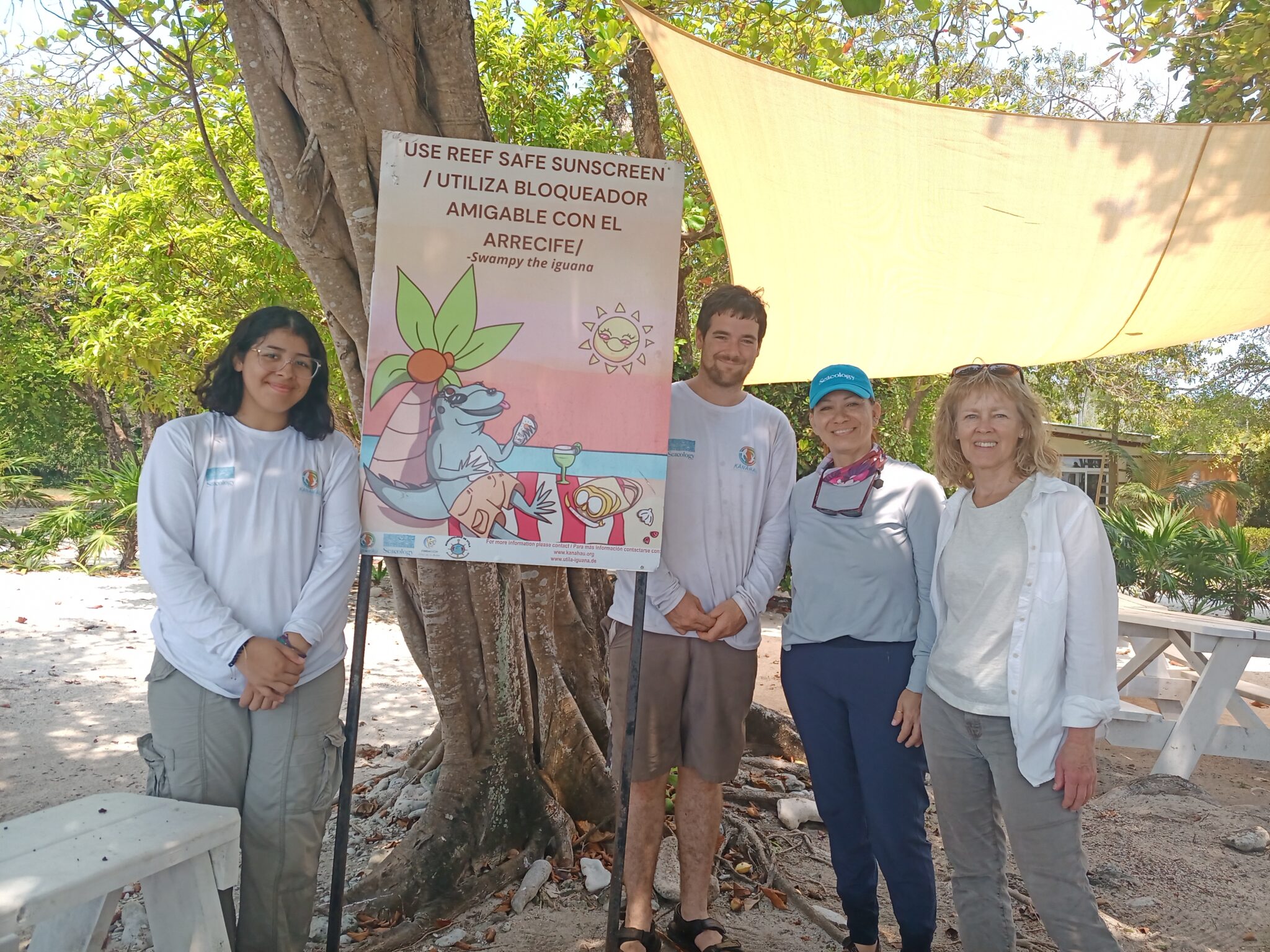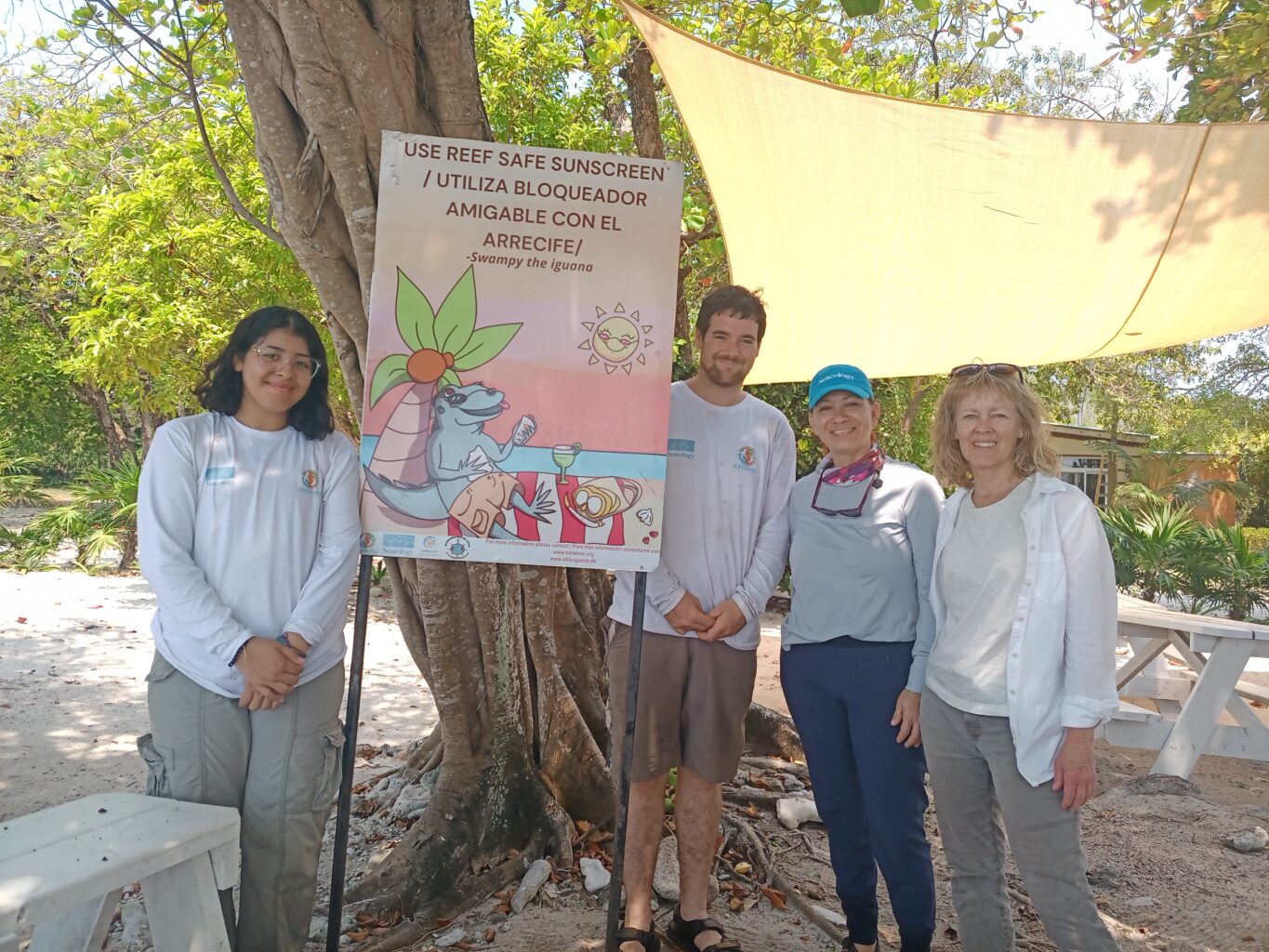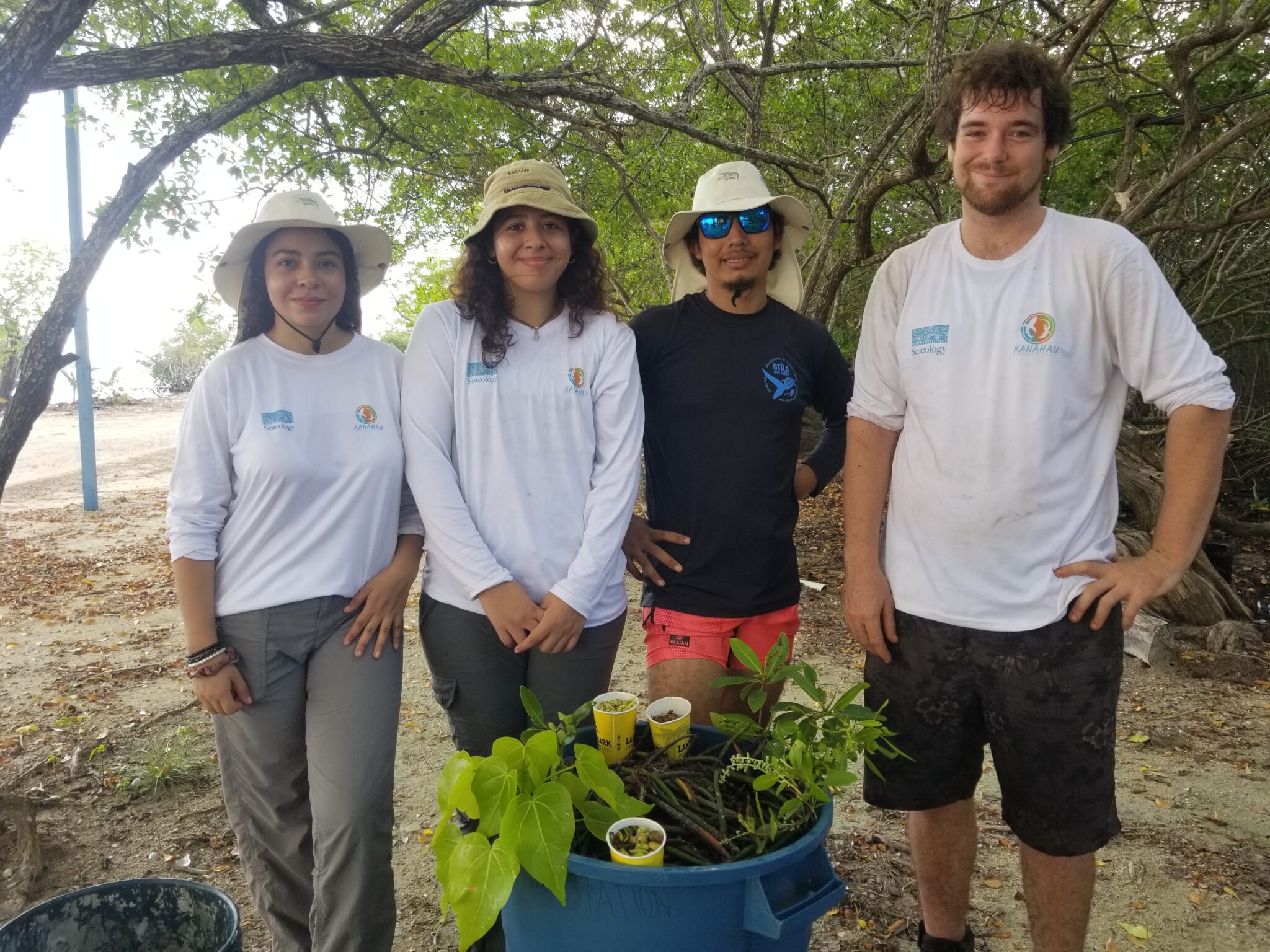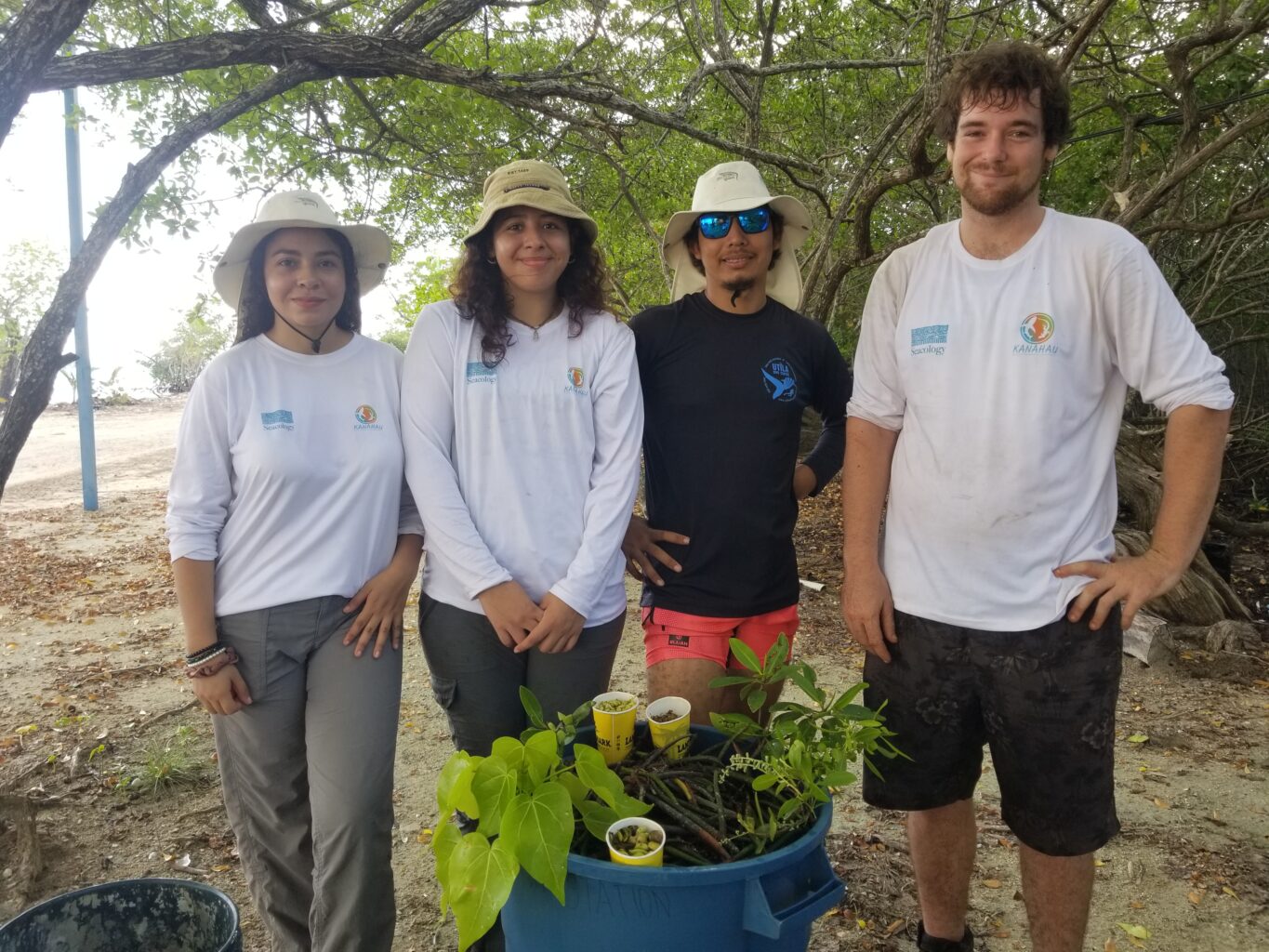The Utila spiny-tailed iguana lives only on Utila Island, the smallest of the three Bay Islands. In recent years, these reptiles have been preyed on by invasive species (particularly rats and northern raccoons), and grazing cattle have trampled their nests. Development and plastic pollution have degraded beaches and mangrove forests, where they nest. Even resort managers remove iguanas to avoid upsetting tourists who may be frightened of them. The species is now on the IUCN’s critically endangered list.
Another significant factor in the iguana’s decline is hunting by humans. It is illegal to kill iguanas, but people eat both eggs and adult iguanas year-round, even in the Turtle Harbour Wildlife Refuge. They are sold locally and on the mainland. Females with eggs are considered a delicacy.
Unless attitudes change, the survival of the spiny-tailed iguana is in doubt. So the Kanahau Wildlife Conservation Organization, with Seacology support, is launching an education and awareness campaign. The goal is to make this rare iguana, which lives nowhere else, a symbol of pride for the people of Utila—something that makes their island special, brings tourists, and is worth protecting.
The program targets:
- Students: Schoolchildren will get classroom learning, play, and field trips to an iguana sanctuary. This kind of “place-based learning” has been shown to foster strong emotional connections to wildlife and is more effective than academic instruction alone.
- Families: Game nights will feature the popular card game Loteria but with an iguana theme.
- Tourists: Workshops and materials will stress the benefits of iguanas—for example, that they eat mosquitos, mice, flies, and other pests.
- The public: Swampy the cartoon iguana will appear on signs, brochures, and posters, urging people to protect the environment. A “Save the Swamper” festival will be held in the summer.
Interns with Kanahau will also regularly patrol iguana nesting areas to deter poaching. Mangroves will be planted to restore 10 acres of iguana habitat.


